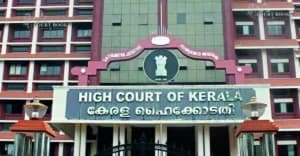In a landmark judgment, the Supreme Court of India has ruled that accidents occurring during an employee’s commute to or from work can be considered as arising "out of and in the course of employment" under the Employees’ Compensation Act, 1923 (EC Act). The decision restores compensation for the family of a watchman who died in a motorcycle accident while heading to his workplace, overturning a High Court order that denied the claim.
Background of the Case
The case involved Shahu Sampatrao Jadhavar, a watchman employed by a sugar factory, who died in a fatal accident while riding his motorcycle to work. His duty hours were from 3 AM to 11 AM, and the accident occurred 5 km from the factory. The Commissioner for Workmen’s Compensation initially awarded Rs 3,26,140/- to his family, holding the accident compensable under the EC Act. However, the High Court reversed this decision, citing the precedent in Regional Director, ESI Corp. v. Francis De Costa (1996), which excluded commuting accidents from employment injury.
Read also:- Supreme Court Dismisses SLP in Y.R. Vincent Case, Allows Petitioners to Pursue Statutory Remedies
The Supreme Court examined three critical issues:
Retrospective Application of Section 51E (ESI Act): Whether this provision, introduced in 2010, could cover an accident from 2003.
Applicability to the EC Act: Whether the interpretation under the ESI Act could extend to the EC Act.
Nexus Between Accident and Employment: Whether the circumstances established a sufficient connection to the employment.
Supreme Court’s Analysis
1. Section 51E of the ESI Act: A Clarificatory Provision
The Court held that Section 51E, which deems commuting accidents as arising out of employment, was clarificatory and retrospective. It resolved long-standing ambiguities in interpreting "arising out of and in the course of employment," aligning with the theory of notional extension (recognized in Saurashtra Salt Mfg. Co. v. Bai Valu Raja, 1958).
"The amendment was intended to remove doubts and uncertainties, making it applicable even to past cases."
Read also:- Kerala High Court Upholds NIA Police Custody Order in UAPA Case Against Shamnad E.K.
2. Statutes in Pari Materia: ESI Act and EC Act
The Court emphasized that both Acts are social welfare legislations with identical phrasing ("arising out of and in the course of employment"). Citing State of Assam v. Deva Prasad Barua, it ruled that interpretations under one could guide the other, given their shared objective of worker protection.
3. Nexus Established in the Case
The deceased’s role as a night watchman requiring early travel, coupled with the accident occurring en route to work, created a direct link to his employment. The Court restored the Commissioner’s award, stressing the beneficial intent of the EC Act.
"Efficiency and security of workers demand that commuting risks be covered when a clear employment nexus exists."
Read also:- High Court Dismisses Petition to Quash FIR in Abetment of Suicide Case Under BNS
Implications of the Judgment
Expanded Employer Liability: Employers must now account for commuting accidents if a work connection is proven.
Retroactive Relief: Families of pre-2010 accident victims can seek compensation under this interpretation.
Alignment with Global Standards: The decision brings India closer to international labor conventions recognizing commute-related injuries.
The High Court’s decision was set aside, and the Commissioner’s award was reinstated, granting the family full compensation with 12% interest from 2003.
Case Title: Daiyshala & Ors. vs. Oriental Insurance Company Ltd. & Anr.
Case Number: Civil Appeal No. 6986 of 2015
Bench: Justice Manoj Misra & Justice K.V. Viswanathan















